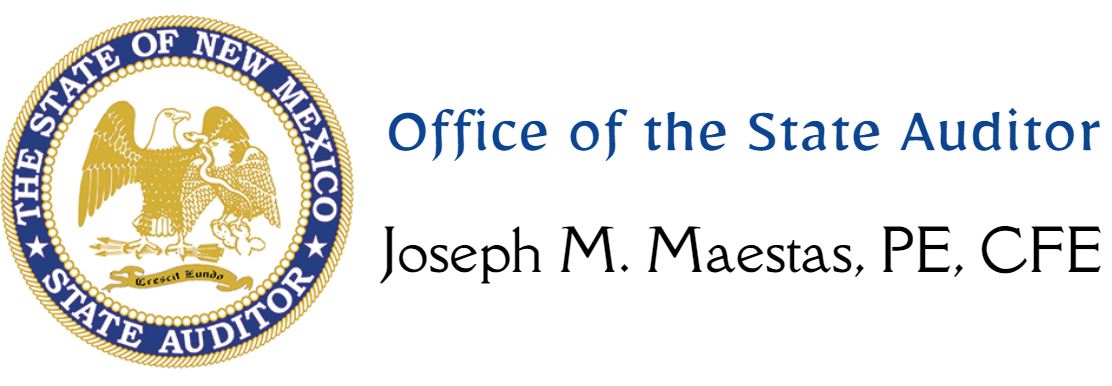SANTA FE—New Mexico State Auditor Joseph M. Maestas announced that he is calling on Governor Michelle Lujan Grisham to resist calls to rescind Executive Order 2013-006, which requires all grantees awarded capital outlay funding from the state to be up to date on their financial reporting required under the state’s Audit Act (NMSA 1978, Section 12-6-1, et seq.) before they can receive the grant funds.
The Executive Order requires the New Mexico Department of Finance Administration, an executive agency under the governor’s authority, to ensure that certain reporting requirements are met before allowing a state agency to certify to the State Board of Finance for the issuance of severance tax bonds for a project or to make a grant to a grantee. The order additionally requires that, for grantees that have audits showing “material weaknesses” or “significant deficiencies,” the grantor must determine what controls it can impose to address those weaknesses or deficiencies or for the grantee to have either remedied those issues or have another public entity act as their fiscal agent for the grant.
“I commend the Governor for retaining and enforcing this executive order. This order is hardly punitive but, instead, is foundational to good government,” Auditor Maestas said in his statement. “Transparency and openness stand as fundamental principles of good governance, with audits serving as essential tools to shed light on public spending. The Executive Order merely helps ensure that entities receiving capital outlay can show and ensure that they are spending the taxpayers’ money the way it is intended to be spent.”
In light of recent calls to rescind the EO, Auditor Maestas instead is asking the Governor to put the issue of codifying the Executive Order in statute on the call for the upcoming legislative session in January.
The Audit Act allows the State Auditor to report the audit findings to the legislature and state finance administrators. There are no penalties for late audits, bad audits, or disclaimed audits, and so while the entities that spend taxpayer dollars across the state must complete audits – the EO incentivizes these entities to have good, clean audits and to turn them in on time to
Office of the State Auditor ensure that oversight agencies have the information they need to take timely and informed action.
“Not only should the requirements in this EO be codified into statute to carry the force of law,” Maestas said, “they should be made even stronger, not weaker, in order to ensure that fiscal accountability and responsibility are the law of the land.”
###
For media inquiries or further information, please contact:
Daniel Maki
Intergovernmental Affairs & Outreach Director
505-396-0829

Recent Comments